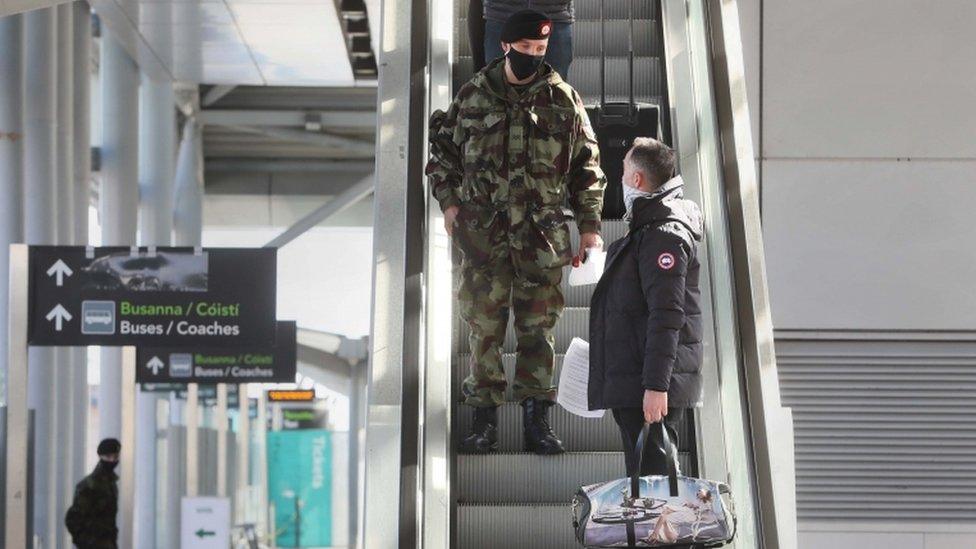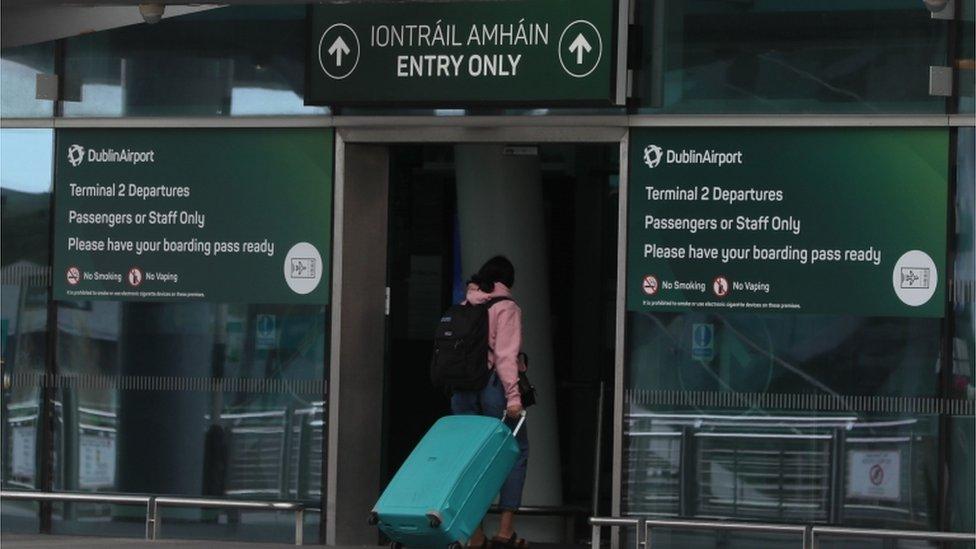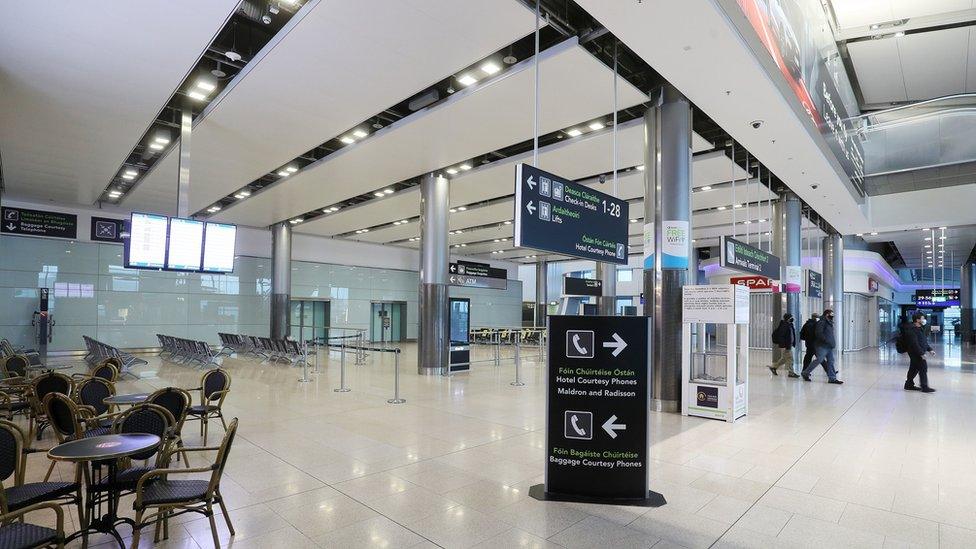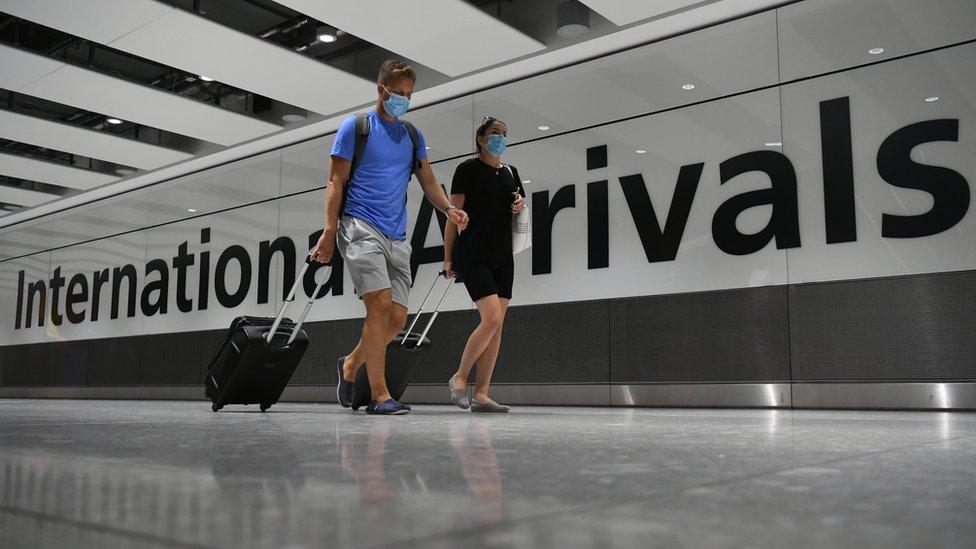Covid-19: Hotel quarantine for 'high-risk' Ireland arrivals
- Published

The Irish Defence Forces are overseeing the process
Mandatory hotel quarantine is now in place for all travellers arriving into the Republic of Ireland from 33 countries deemed "high risk" for Covid-19 transmission.
Passengers must book and pay for a 12-night stay from a selection of dedicated hotels across the country.
The time could be reduced if someone receives a negative Covid-19 test on day 10 of quarantine.
On Thursday, Northern Ireland announced plans for "managed isolation".
It comes as NI prepares to reopen some travel routes and would mean offering hotel accommodation for people who need to self-isolate on arrival.
In the Republic of Ireland, quarantine was made mandatory at 04:00 local time on Friday, with pre-booking necessary.
The Tifco Hotel Group will be responsible for transporting passengers from their arrival point to the quarantine hotels.
While it will also be responsible for providing security, the Irish Defence Forces will oversee the process and escort the buses to the hotels.
The cost of a 12-night stay is €1,875 (£1,614) for one person, €625 (£535) for another adult (or child aged over 12) sharing the room, €360 (£308) for a child aged 4 to 12, with no charge for infants.
Failure to comply could result in a fine of up to €2,000 (£1,700) or a month in prison.
Which countries are high risk?
The new rules affect any passenger who was in one of the designated "high-risk" countries in the past 14 days, including those getting a connecting flight.
It also affects people who do not have a negative PCR test taken in the 72 hours prior to their arrival.
The "high-risk" list is subject to change at any time, and currently mainly comprises countries in South America and Africa, although Austria is also on the list.
Other countries include: Angola, Argentina, Bolivia, Botswana, Brazil, Burundi, Cape Verde, Chile, Colombia, Democratic Republic of Congo, Ecuador, French Guiana, Guyana, Lesotho, Malawi, Eswatini, Mauritius, Mozambique, Namibia, Panama, Paraguay, Peru, Rwanda, Suriname, Seychelles, South Africa, Tanzania, United Arab Emirates, Uruguay, Venezuela, Zambia, and Zimbabwe.

A 12-night stay costs €1,875 (£1,614) for one person
The Irish cabinet is expected to meet next week to discuss the country's coronavirus restrictions and possible changes after 5 April.
There has been speculation that a 5km travel restriction for people living in the Republic could be increased to 10km.
Related topics
- Published21 March 2021

- Published18 February 2021
